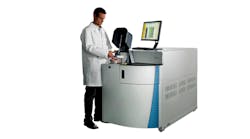The U.S. Dept. of Labor’s Occupational Safety and Health Administration is establishing a National Emphasis Program for the Primary Metals Industries, aiming to give particular attention to workplace hazards that are common in foundries, mills and similar operations, and “to identify and reduce or eliminate worker exposures to harmful chemical and physical hazards in establishments producing metal products.
The establishment of a NEP for metals has been reported for several months, based on the seriousness and frequency of hazardous conditions and incidents uncovered by OSHA inspectors in primary metal operations. The agency already has National Emphasis Programs in place to monitor conditions involving hazardous substances — hexavalent chromium, lead, and crystalline silica.
OSHA explained that primary metals industries emerged as an area of concern during a review of data from the Bureau of Labor Statistics’ Census of Fatal Occupational Injuries. OSHA inspectors have found workers in the industry exposed to metal dusts and fumes, carbon monoxide, lead and silica, among other substances. Other discoveries include workers exposed to excessive or hazardous noise and heat.
OSHA specifically identifies manufacturing plants or sites involved in extracting and refining iron, lead, nickel and tin, among other elements, and operations that produce nails, insulated wires and cables, steel piping, and copper and aluminum products.
“Workers who are not properly protected from the hazards of metals refining are at increased risk of serious, potentially deadly health effects,” stated Labor Dept. assistant secretary Dr. David Michaels. “OSHA’s new enforcement program will raise awareness of the dangers of exposure to metals and other chemicals, so that employers can correct hazards and comply with OSHA standards.”
Latest from Testing/QC
Latest from Testing/QC
Industry Events
FM&T's 2024 Guide to Exhibitors
April 19, 2024
New Products
Streamlining Elemental Analysis
Oct. 3, 2023
New Products
Bifocal Protective Eyewear
Aug. 28, 2023
New Products
New Portable Measuring Arms
Aug. 1, 2023
New Products
Sensor Optimizes Combustion Systems
July 25, 2023
New Products
Monitor Inclusions in Steel
June 20, 2023








